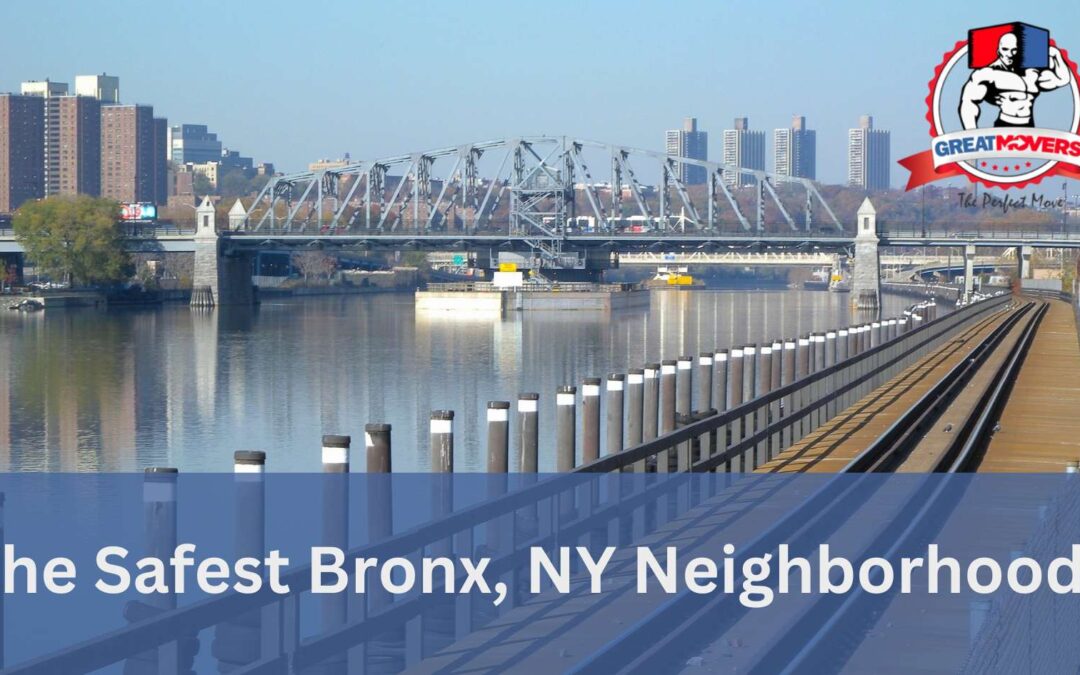In 2020, three times as many people left NYC than any other calendar year. However, since the end of 2021, people are moving back as more jobs are demanding employees come back in-person at least 3-4 days a week. Of course, others are moving back as NYC reopens and they can once again enjoy everything that makes the city amazing.
If you’re looking to move back to NYC, you might be shocked to see how quickly the rental prices rebounded and, in many cases, have jumped since even the beginning of 2019. Competition for prime apartment spaces are at an all time high so if you’re moving back to NYC you might want to follow the following tips.
Start Your Search ASAP
With confidence returning back to the rental market in NYC, so too did demands. As such, there are fewer available apartments and the ones that are available tend to have already reached pre-pandemic rents. With that said, there are still some affordable (by NYC standards) places available, you just have to be on the lookout and ready to put down an offer ASAP. The NYC rental market has always been cutthroat so if you’re already familiar with the landscape, it shouldn’t come as any surprise to you how quickly it moves.
Considering rentals are in high demand, if you’re looking to move back to NYC after COVID-19, you’ll want to start your search as soon as you can. There aren’t as many places on the market now so you will have to set aside at least a month to find your perfect place. You might get lucky and find your new pad in one week or it might take the entire month or longer.
Read the Listing Carefully
There’s nothing worse than getting excited about an apartment only to find out that it’s too small, too expensive, or doesn’t have the amenities you want. Before you even book a viewing, make sure to carefully read everything in the listing with a fine-tooth comb. Of course, brokers and landlords aren’t going to spell everything out for you, so you’ll need to pay close attention to the details. Below are some a few things to look over:
- Rent – to entice people back to the city, many real estate companies were offering a few free months of rent. Because of this many started showing the net effective rent versus the actual rent. Thankfully, many online real estate sites now show both the net effective rent and actual rent.
- Rent-stabilized – while not all rent-stabilized apartments will advertise this feature, many will as they know it will attract many potential tenants. If you don’t see this listed, look up the building to see if it falls in the appropriate category and also call the broker/landlord to double check.
- Utilities – by law, landlords are required to provide access to heat and hot water. However, just because they need to supply it doesn’t mean they have to pay for it! Make sure the listing states that heat and hot water is included in the utilities. Otherwise, you’ll have some hefty bills to pay at the end of the month.
- Amenities – most NYC apartments won’t come with washer/dryer or dishwashers, but that doesn’t mean you can’t find one. Newer units tend to have more in-unit amenities along with other bonuses like a gym. If these are important to you, it’s worth it to hold out until you find a place that matches the bill or gets close.
Have Your Paperwork Prepared
Whether you’re working with brokers or with the landlord directly, it’s important to have your paperwork ready to go. This includes your most recent tax returns, two recent bank statements, a letter of employment or two recent pay stubs, a copy of your photo ID, and a signed agency and fair housing disclosure. Do you have pets? Make sure to get a letter from your vet confirming they are up-to-date on vaccinations. You should also have a checkbook handy to pay the fee for a credit and background check. This way, you can fill out the application on the apartments you like that day. While it doesn’t guarantee you the apartment, it does mean you’re in the pool of qualified renters.
If you’re just getting your start in NYC you might not be making enough money to fulfill the salary requirements of making 40x the monthly rent. In that case, you’ll need a guarantor who makes at least 80 times the monthly rent. Usually this person is a close relative, but if you don’t have someone you might be able to ask a friend or look into getting a roommate so that you have a combined income of 40x the monthly rent. If all else fails, you can use an institutional guarantor that will charge a fee of around 70 to 90 percent of one month’s rent.
Don’t Be Afraid to Negotiate
While it’s a landlord’s market out there, that doesn’t mean there’s no room for negotiation. Your best weapon is information. Even if you’re moving back to NYC, the real estate market changes so quickly that what might have been true two years ago isn’t anymore. Before you jump back into the fray, do your research. Are a lot of apartments offering a free month in exchange for a higher rent? If so, see if you can forego the free month for a lower gross rent. Or you can try the reverse. Offer a higher gross rent for a month or two of free rent. Just remember that when it comes to renewing your lease, the landlord will be going off the gross rent as the starting point.
Another great way to save some money on rent is to accept an apartment that doesn’t come with any upgrades. If the broker mentions that the landlord plans on updating the room, appliances, or even putting a new coat of paint on the walls, you can opt out of these upgrades in exchange for a lower rent. The caveat, of course, is that the apartment and appliances are in good enough condition that they don’t ‘need’ an upgrade. So before you spring for this option, test out the appliances to make sure they work properly.
Have Your Finances in Order
Depending on when you left NYC, a lot has changed when it comes to how much money you need to pay to get an apartment. Before 2019, landlord’s could request first month’s rent, security deposit, last month’s rent, and even a broker’s fee. This could add up to over $10,000 for the initial payment when moving into your new place. Thanks to the Housing Stability and Tenant Protection Act, landlords can only ask for first month’s rent and a security deposit that is equal to one month’s rent. If you’re working directly with a broker you’ll also have to pay a broker’s fee. While still not cheap, you’ll need less upfront cash than before.
What does this mean for you? It means that you should still plan to save up at least $10,000 for moving expenses. In addition to your deposit, you’ll need to set aside some money to hire professional NYC movers. Sure, you can do it yourself, but you’ll save yourself a lot of time and stress by bringing on trained pros. If you’re planning on moving back to NYC, make sure to start setting aside money as soon as possible. That way you won’t have to take out loans or ask friends and family for the money.
Of course, you don’t always know months in advance that you’ll be moving back to NYC. Maybe your job is requiring you to be back in the office in a month or you received a great job offer that requires in office work. In the latter case, you might be able to request a relocation expense. In the former, you might just have to take out a personal loan or ask friends and family. In some cases, you might be able to ask for an advance from your employer. Be prepared for your employer to deny your request or ask for some changes to the terms.
Welcome Back to NYC
It’s hard to stay away from NYC for too long. The convenience, world-class entertainment, amazing cultural institutions, and general atmosphere of the city is hard to beat. If you’re planning on moving back to NYC after COVID-19, you’ll want to hire NYC movers who not only know the city, but take health safety precautions seriously. For that, you should give us a call! We’ll provide you with a free quote and can answer any questions you might have.
FAQ
Do I always need to pay a broker’s fee?
If you want to avoid a broker’s fee, search for no fee apartments as the landlord will pay the fee instead of you. Otherwise, if you’re working with a broker you will likely have to pay. Generally the fee is 15% of the annual rent.
Should I put a good faith deposit to ‘hold’ my place for an apartment?
Unless you’re going to be reimbursed for the deposit or it goes towards your security deposit, asking for a good faith deposit is illegal in NYC. If you’re asked for a deposit upfront to hold the apartment, you might want to walk away and look elsewhere.
I wasn’t able to find an apartment after my lease ended. What should I do?
If possible, ask your current landlord to switch over to a month-to-month agreement and give them a deadline on how long you think you’ll need. Unless they already have a tenant lined up, many will be okay with this arrangement. However, if they say no you can always look for short-term rentals and AirBnBs until you’ve found your permanent home.






